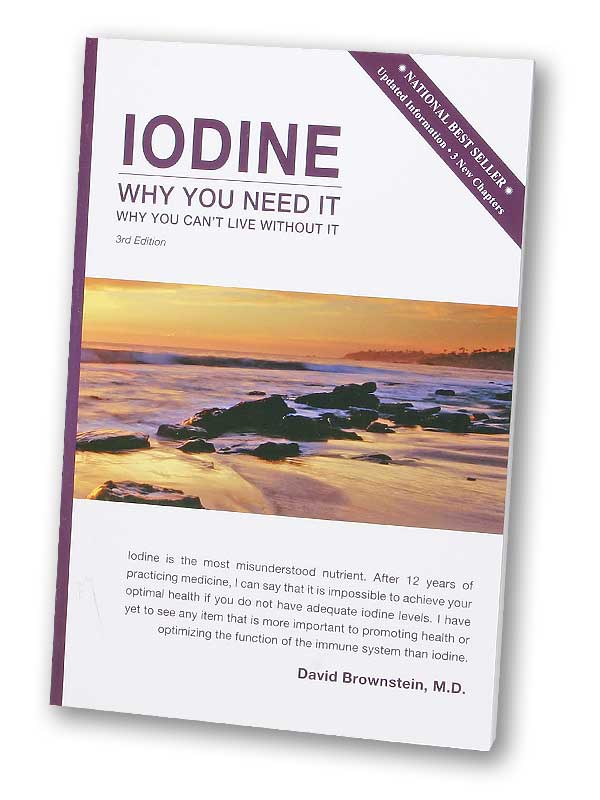


He believes that the current dietary standards for iodine are the bare minimum required for thyroid function, leaving no additional iodine for the benefit of the rest of the body. Brownstein reports that approximately 90% of his patients are iodine deficient. However, iodine deficiency is common in land-locked areas, “particularly those who live in mountainous regions or in the middle of the continent,” notes Paul Bergner in The Healing Power of Minerals, Special Nutrients, and Trace Elements.ĭr. Iodine levels are generally normal for human populations that live near the ocean, particularly those with a large fish intake in their diet. Iodine is a relatively sparse substance on the planet, with the majority of it being found in oceans and sea life. However, bromine can interfere with iodine’s absorption into the body, which may ultimately worsen the iodine deficiency problem. Therefore iodine was replaced with bromine in certain foods. In the 1980s, the National Institute of Health (NIH) had concerns about the population getting too much iodine. During the 1960s, iodine was added to baked goods. In the United States, iodine was added to salt (iodized salt) in the 1920s specifically to curb the incidence of diseases brought on by an iodine deficiency. David Brownstein in his book Iodine: Why You Need It, Why You Can’t Live Without It.

“For over 100 years, iodine has been known as the element that is necessary for thyroid hormone production,” writes Dr. The remainder is distributed throughout the body, primarily in the breasts, ovaries, muscles, and blood. Shari Lieberman and Nancy Bruning in The Real Vitamin & Mineral Book, approximately three-quarters of the body’s iodine supply is found in the thyroid gland. Iodine receptors are found throughout the body, with a high concentration in the thyroid gland according to Dr. On average, the human body contains 20-30 milligrams of iodine, which is primarily concentrated in the glandular system. Regulating functions in the nervous and muscular systems.Promoting healthy hair, nails, skin, and teeth.Promoting and regulating physical and mental growth.Aiding hormone production, particularly in the thyroid gland.It plays a vital role in several aspects of health, including: Iodine is an essential trace element necessary for the production of all hormones in the body and proper function in the immune system. Distinguished Organziational Affiliations.Artificial & Replacement Organs & Tissues.


 0 kommentar(er)
0 kommentar(er)
